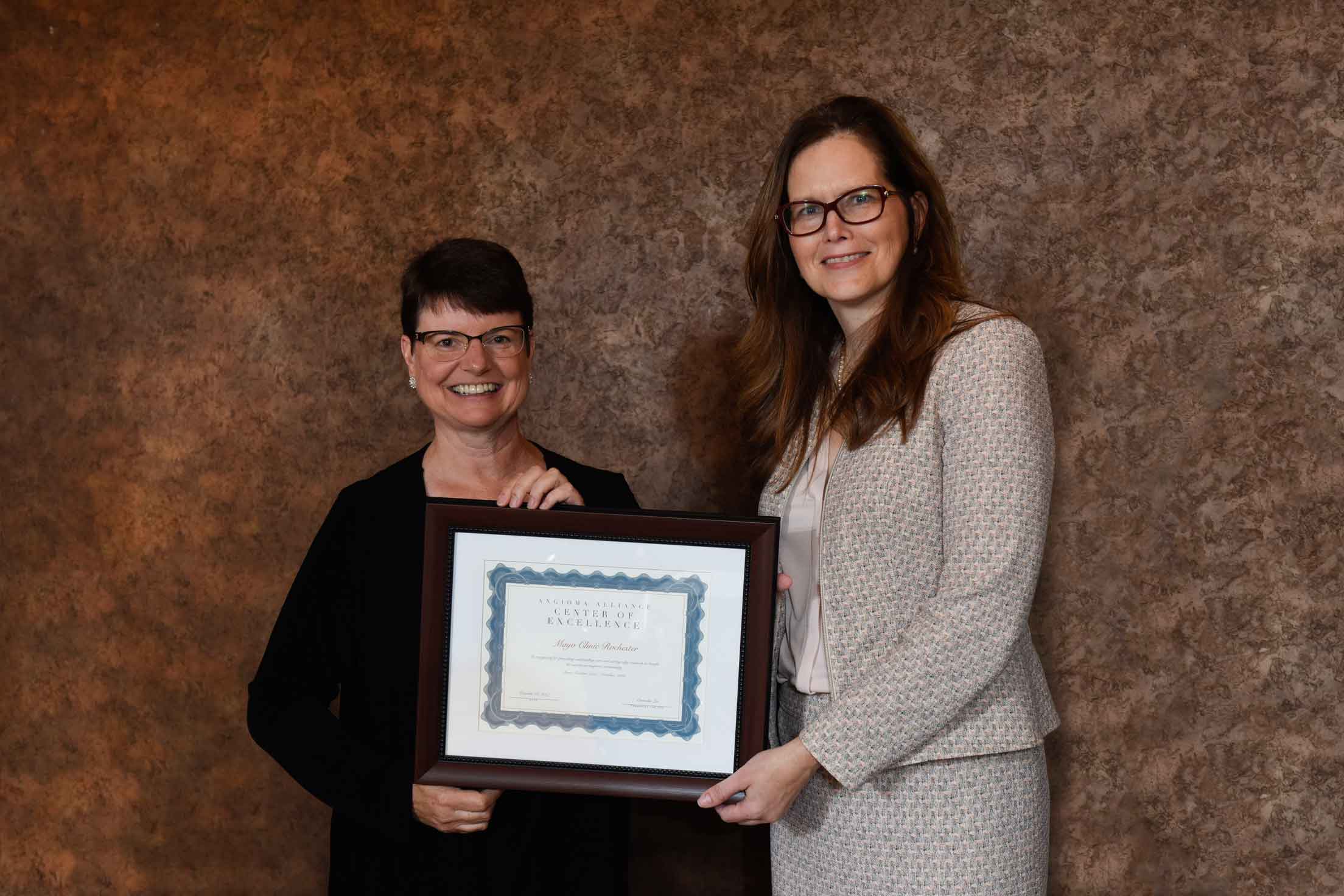
Recognized as a Center of Excellence on 10/16/2017, Public Announcement
Mayo Clinic Experts in Surgery and Personalized Care for Cavernous Malformation
Phone: (507) 538-1036
Address: 200 First Street SW, Rochester MN 55905
Number of Outpatient CCM appointments annually: 75
Number of Inpatient CCM patient days annually: not known
Number of CCM research publications, 2012-2020: 35
Core Faculty
Medical Director and Neurologist: Kelly Flemming, MD
Co-Director and Neurosurgeon: Giuseppe Lanzino, MD
Cerebrovascular Neurologists: Kelly Flemming, MD, Deena Nasr, DO, Eugene Scharf, MD, Robert D. Brown, Jr., MD
Cerebrovascular Neurosurgeons: Giuseppe Lanzino, MD, Lorenzo Rinaldo, MD, Fredric Meyer, MD
Epileptologist: David B. Burkholder, MD, Kelsey M. Smith, MD
Geneticist: Ralitza Gavrilova, MD, Radhika Dhamija, MBBS
Neuroradiologist: Petrice M. Cogswell, MD, PhD, Waleed Brinjikji, MD
Nurse Coordinators: Jaime Hanson*; Michele Rosenblad, RN
Additional Faculty:
Cerebrovascular Neurologists: Jimmy Fulgham, MD, James Klaas, MD, Irene Meissner, MD, Jon Graff-Radford, MD, Zafer Keser, MD, Muhib Khan, MD
Epileptologists: Jeffrey W. Britton, MD, Gregory D. Cascino, MD, Terrence D. Lagerlund, MD, PhD, Elson So, MD, Gregory Worrell, MD, PhD
Pediatric Neurosurgery: David J. Daniels, MD, PhD
Skull Base Neurosurgery: Lorenzo Rinaldo, MD, Michael Link, MD, Jamie J. Van Gompel, MD, Maria Peris-Celda, MD, Gelareh Zadeh, MD, PhD
Stereotactic Radiosurgery: Bruce E. Pollock, MD
Summary of the Mayo Clinic Research Program
Our main research interest is aimed at trying to understand the natural history of CCM and what medications, medical history, lifestyle factors, and activities influence lesion activity. Natural history refers to what happens to people when there is no intervention, specifically, how many people with CCM bleed if surgery is not recommended or possible. There are a number of concerns from patients that certain medications (e.g., blood thinners), medical conditions (concussion, pregnancy), or activities (weightlifting) influence CCM activity. Since 2015, we have enrolled 450 people with CCM into a prospective cohort study and followed them over time in an attempt to answer these questions that are important to people with CCM. We are further assessing the role of AI (artificial intelligence) and machine learning in determining bleed risk in CCM.
We also participated in the Trial Readiness Project for Cavernous Angioma with Symptomatic Hemorrhage which will help researchers design medication studies for patients with CCM. We are also currently participating in a Cavernous Angioma Symptomatic Hemorrhage blood biomarker study for patients with CCM in conjunction with the University of Chicago and others.
Patient Education includes a dedicated web page for CCM and a CCM-specific educational packet given to each patient.
Medical Provider Education includes Grand Rounds, dissemination of the Alliance to Cure Cavernous Malformation Clinical Care Consensus Guidelines, and the inclusion of CCM in medical school training.
For more information, please visit Cavernous Malformation Care- Mayo Clinic.
Last updated 4.14.2025


